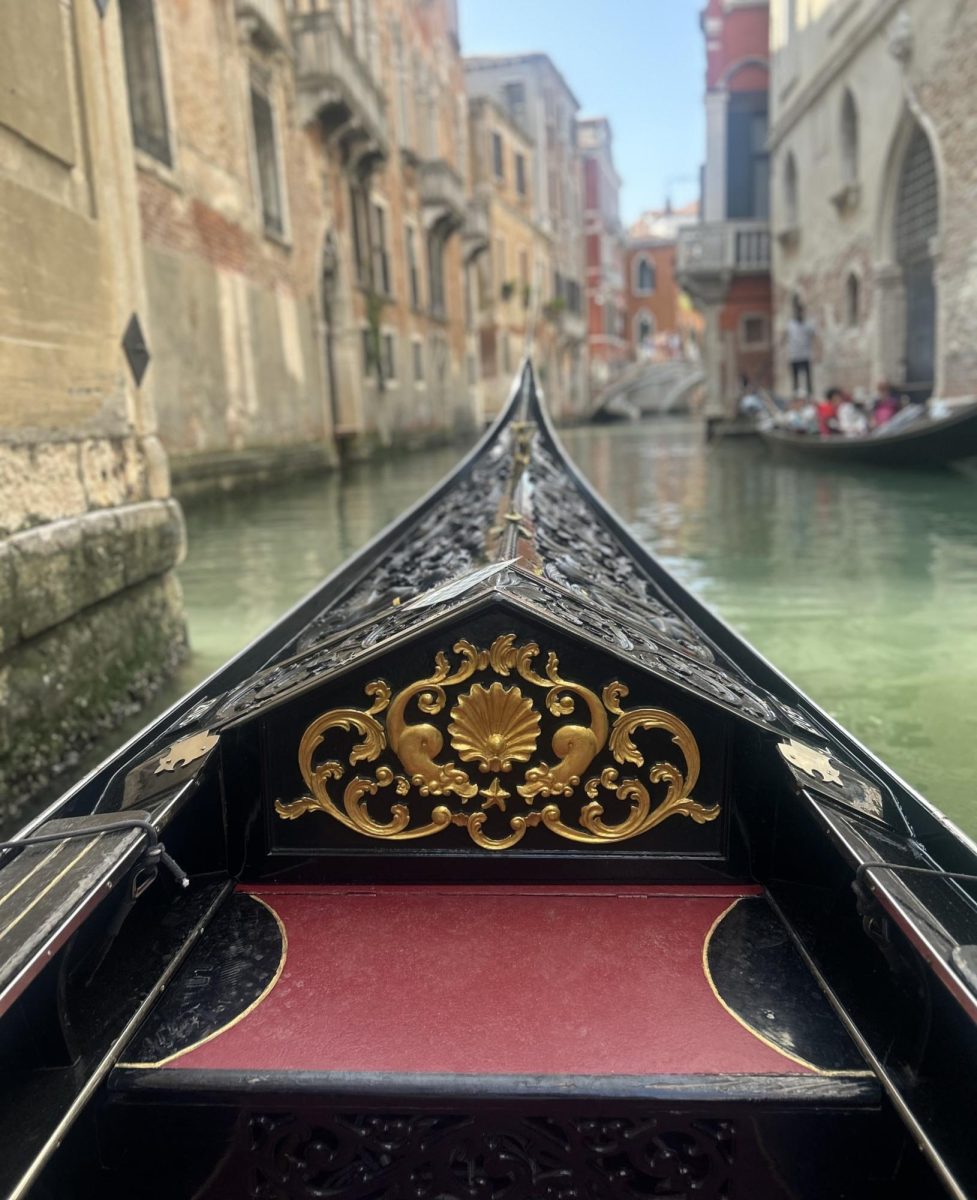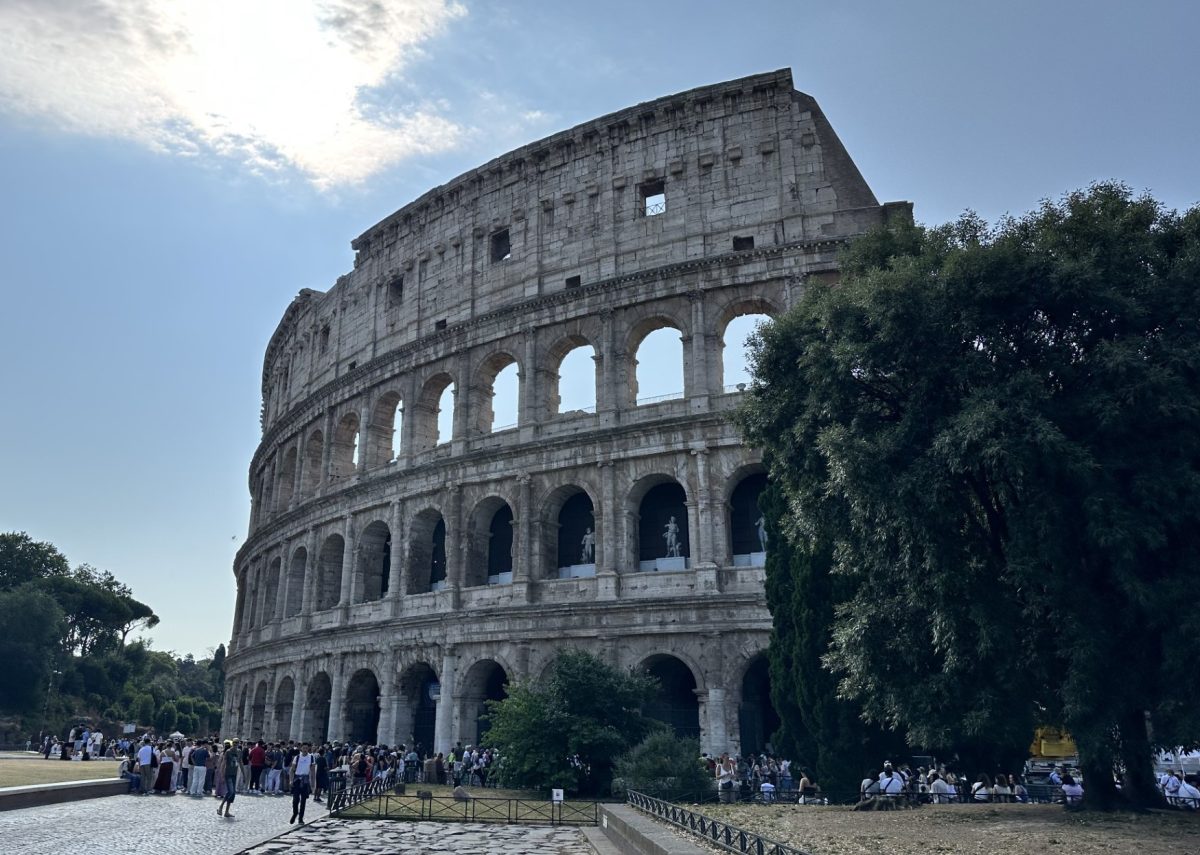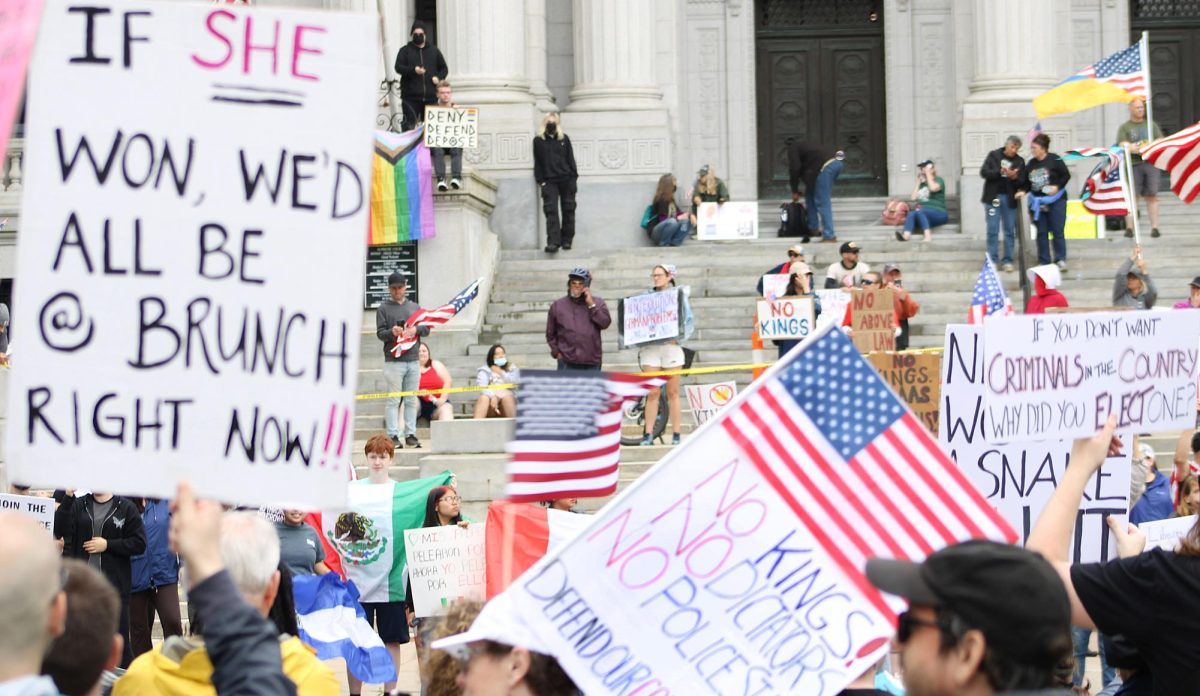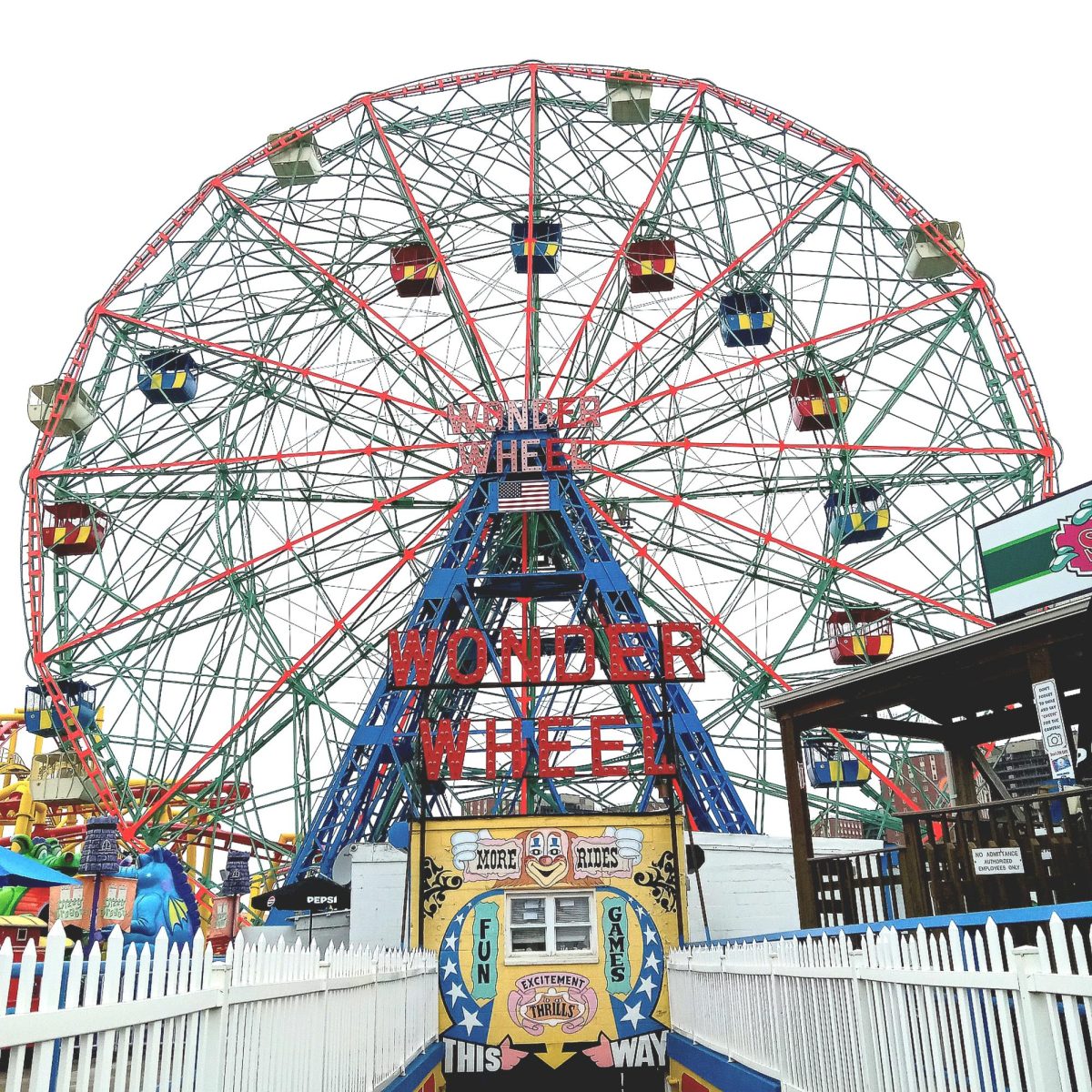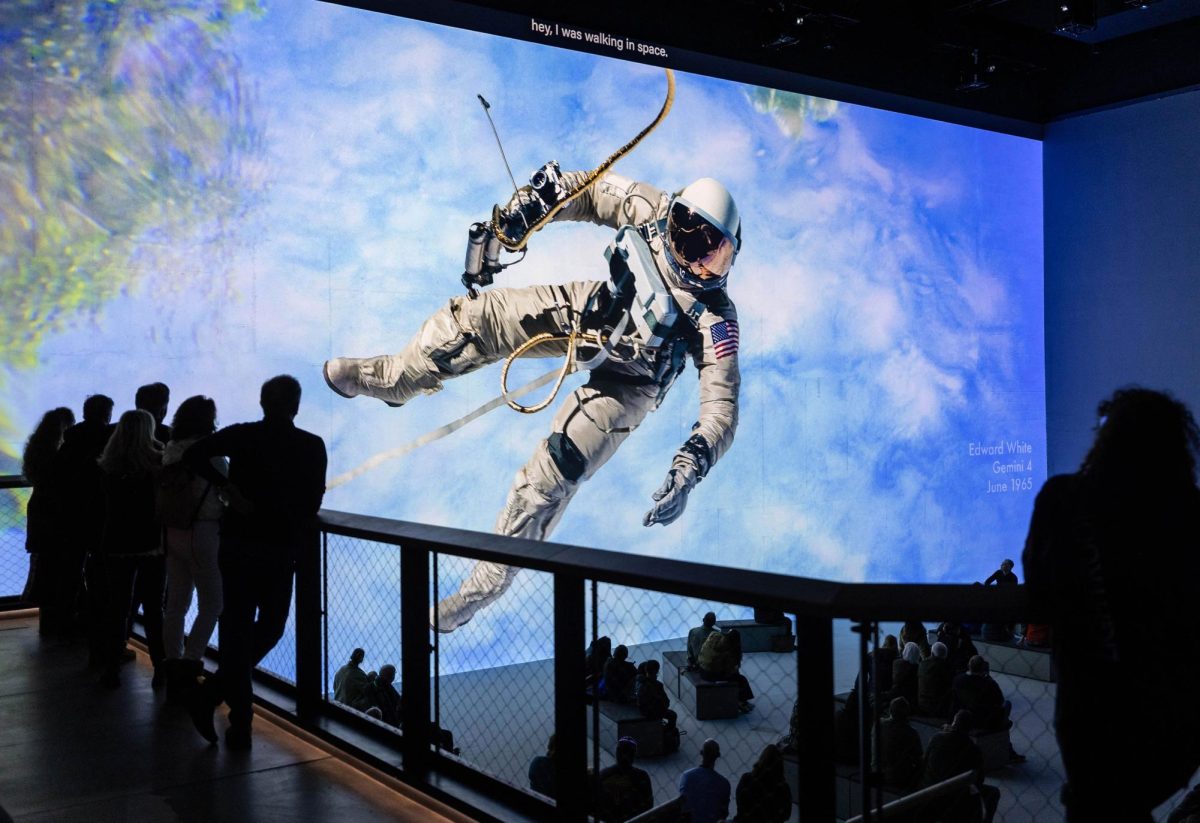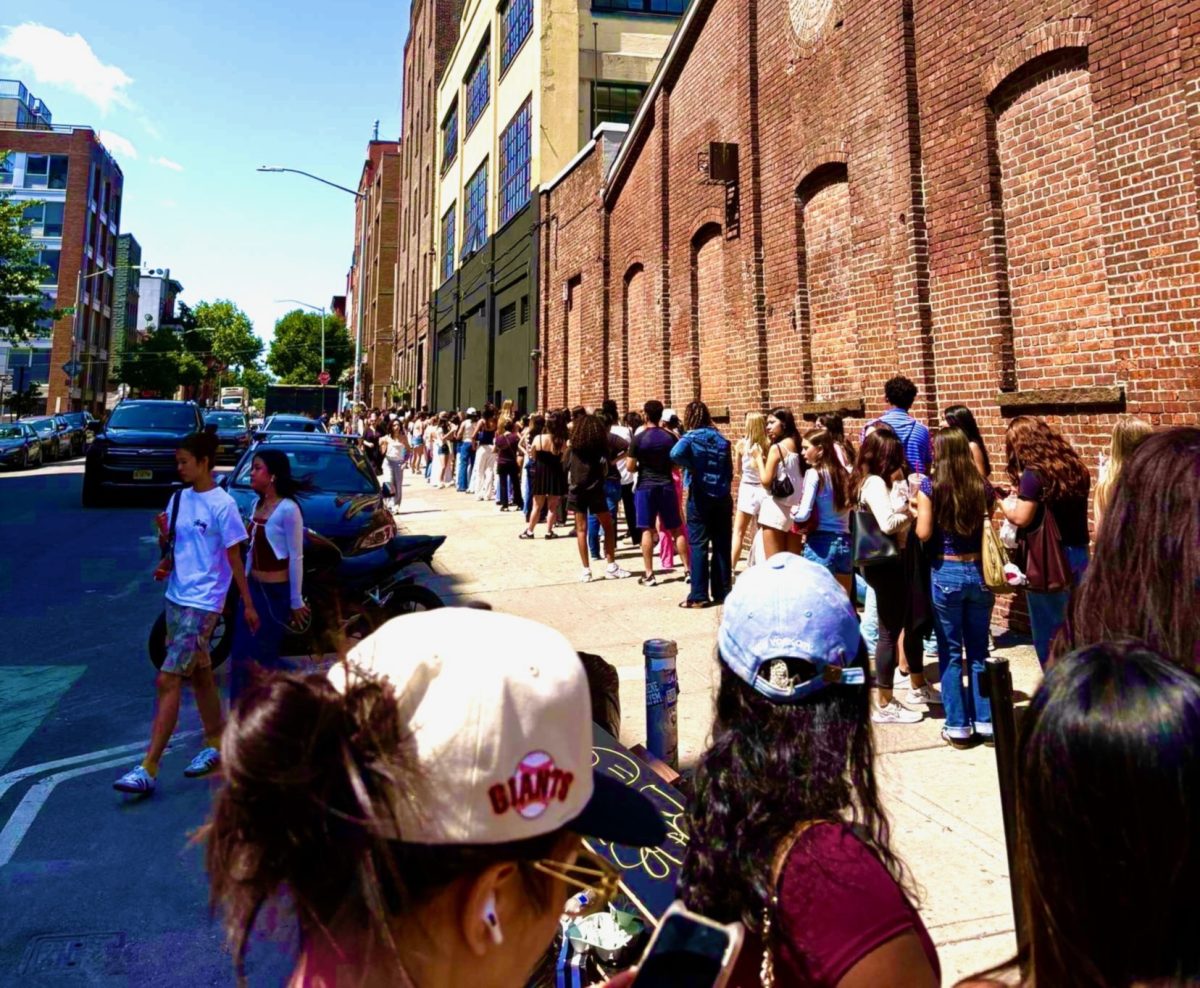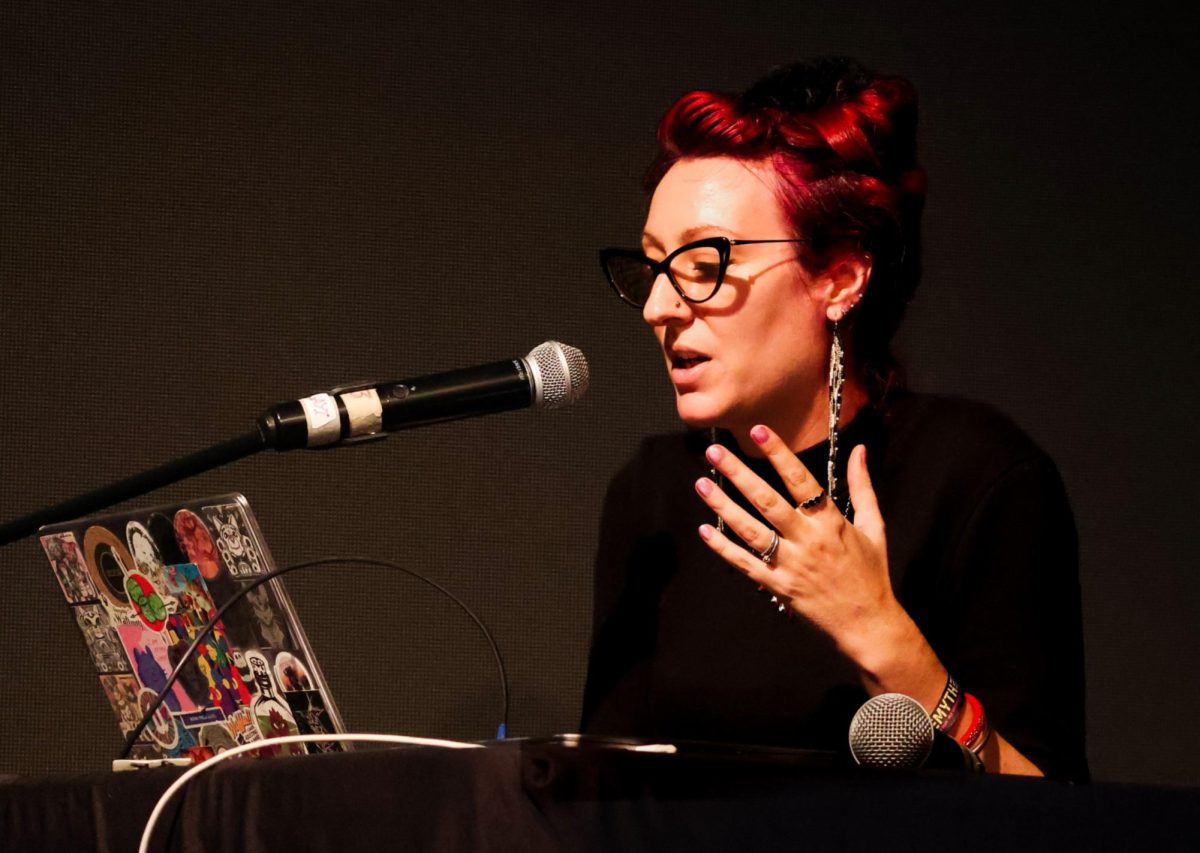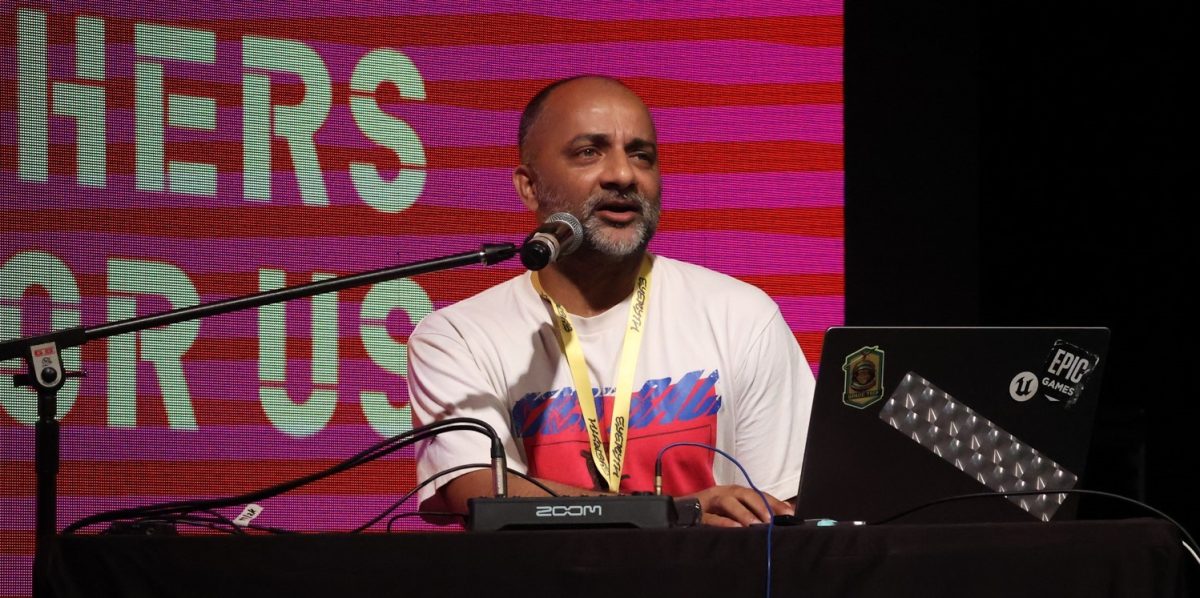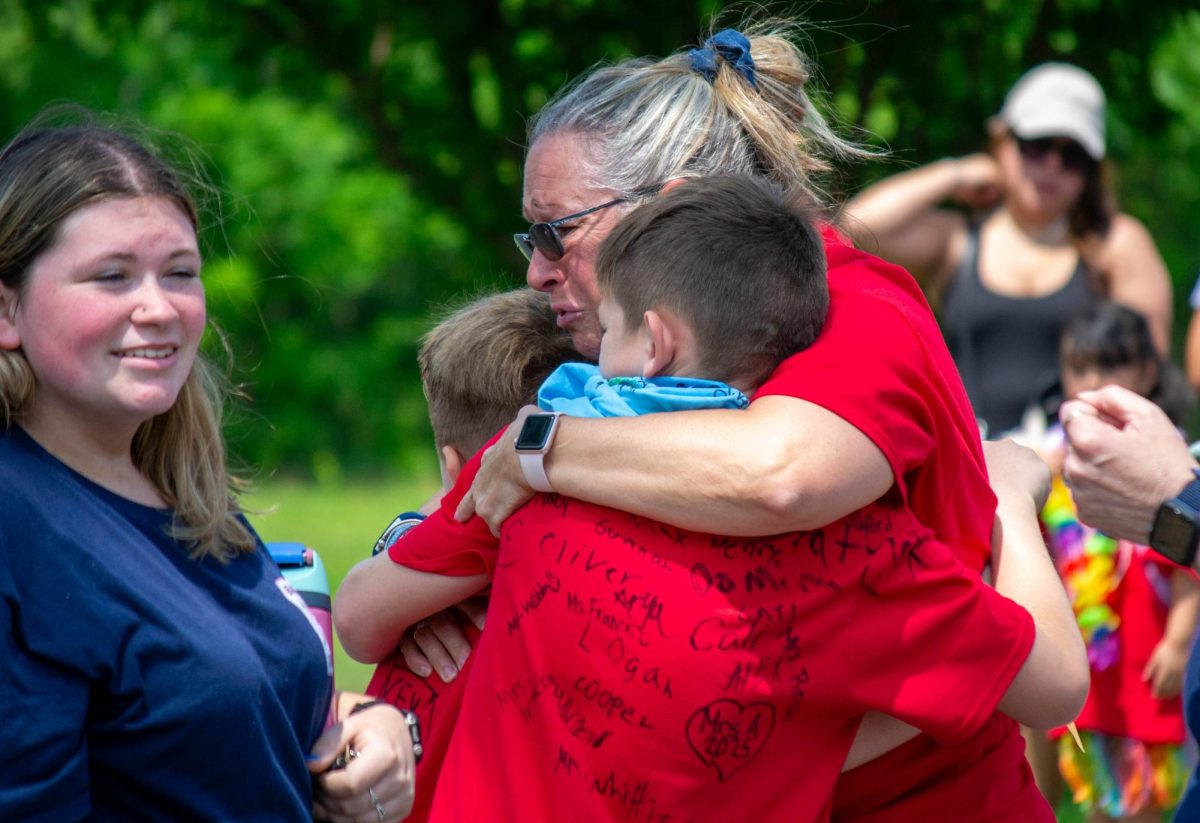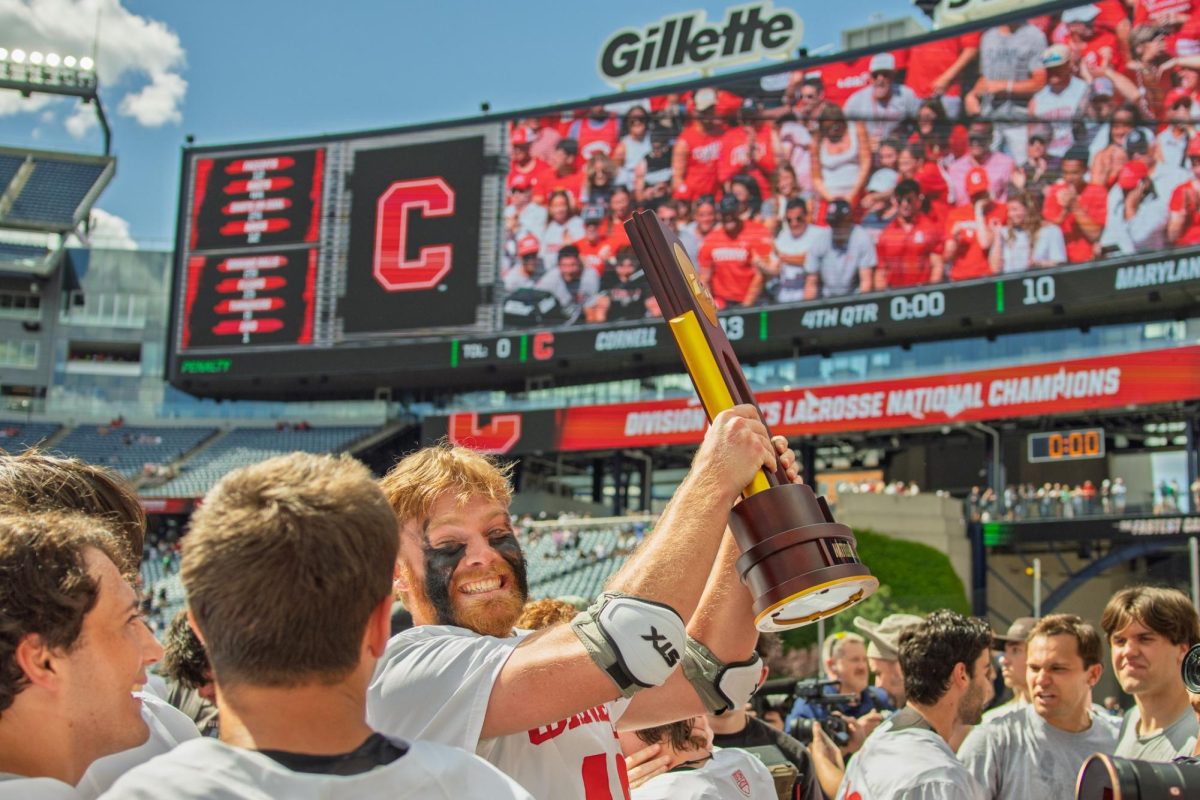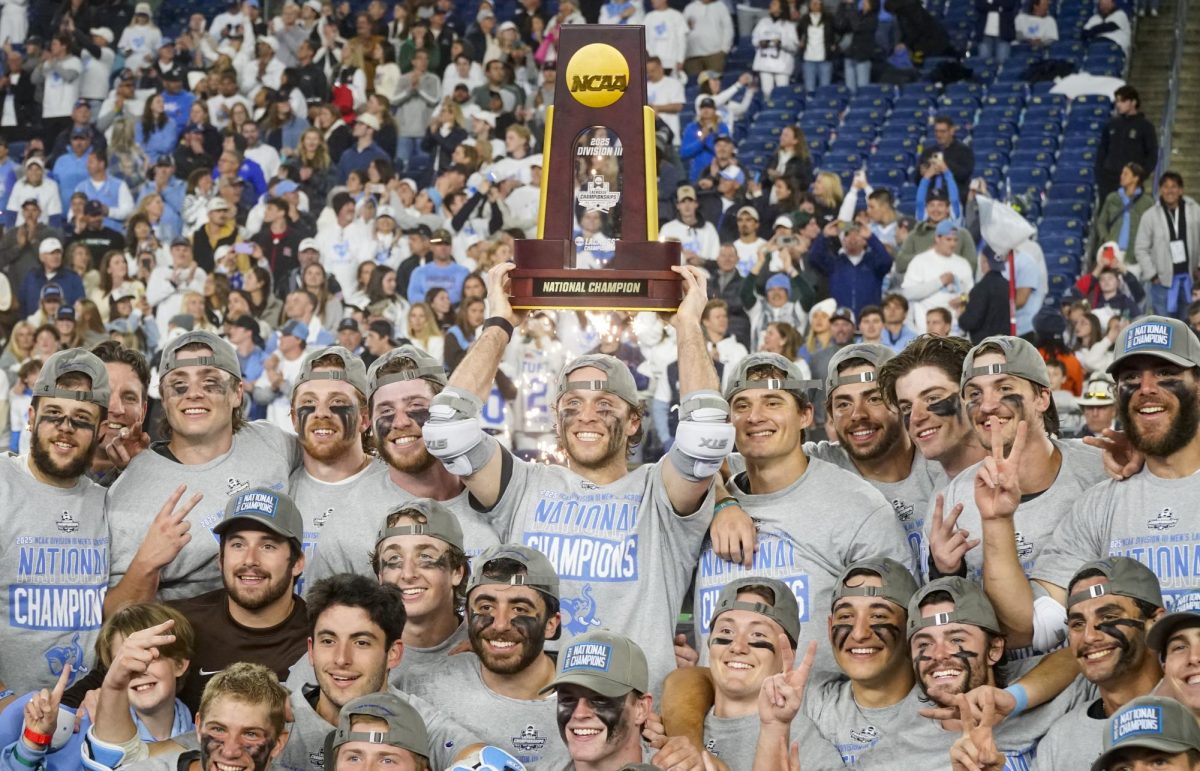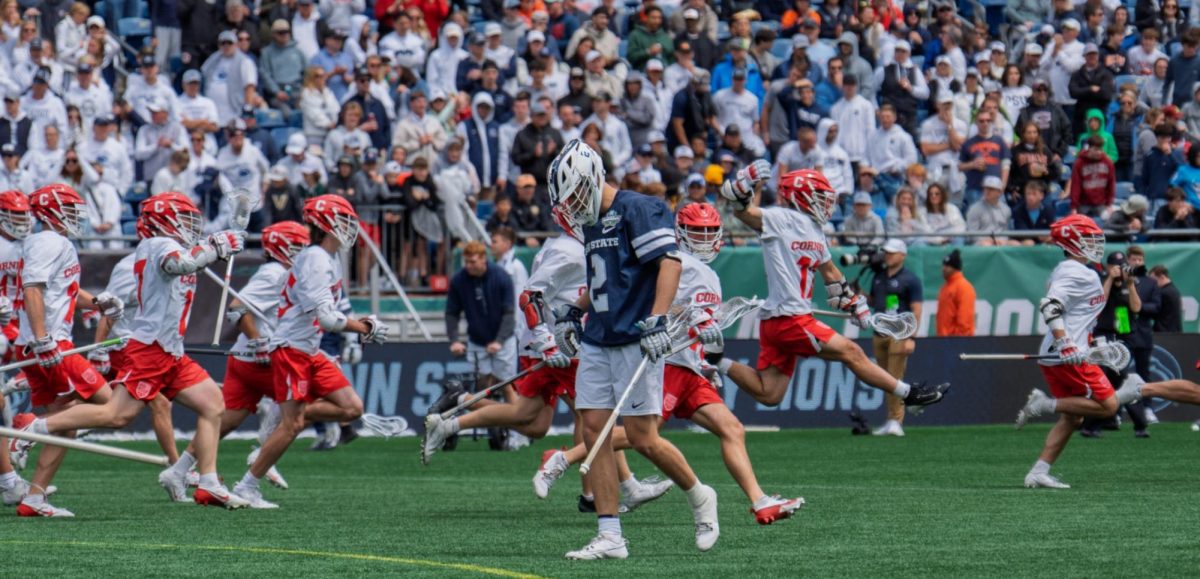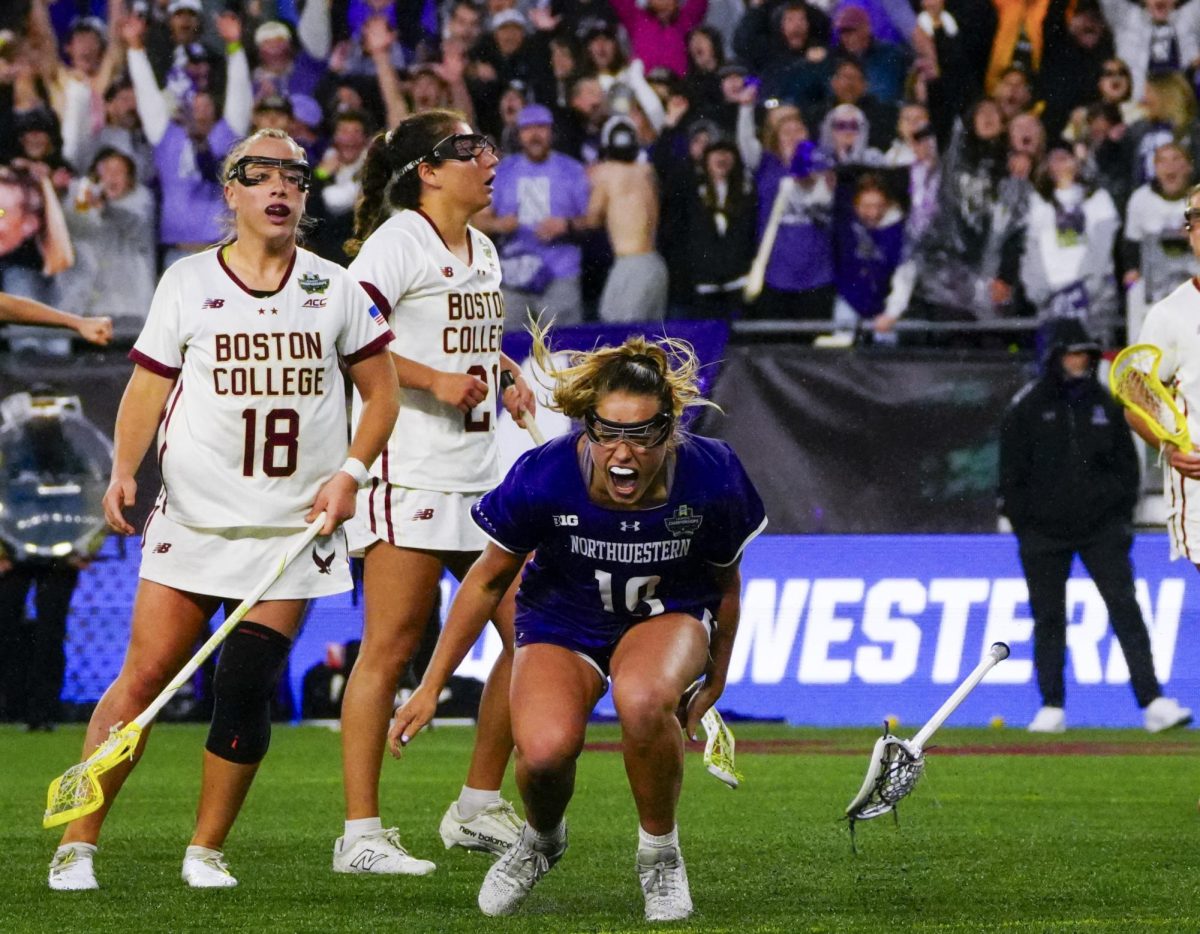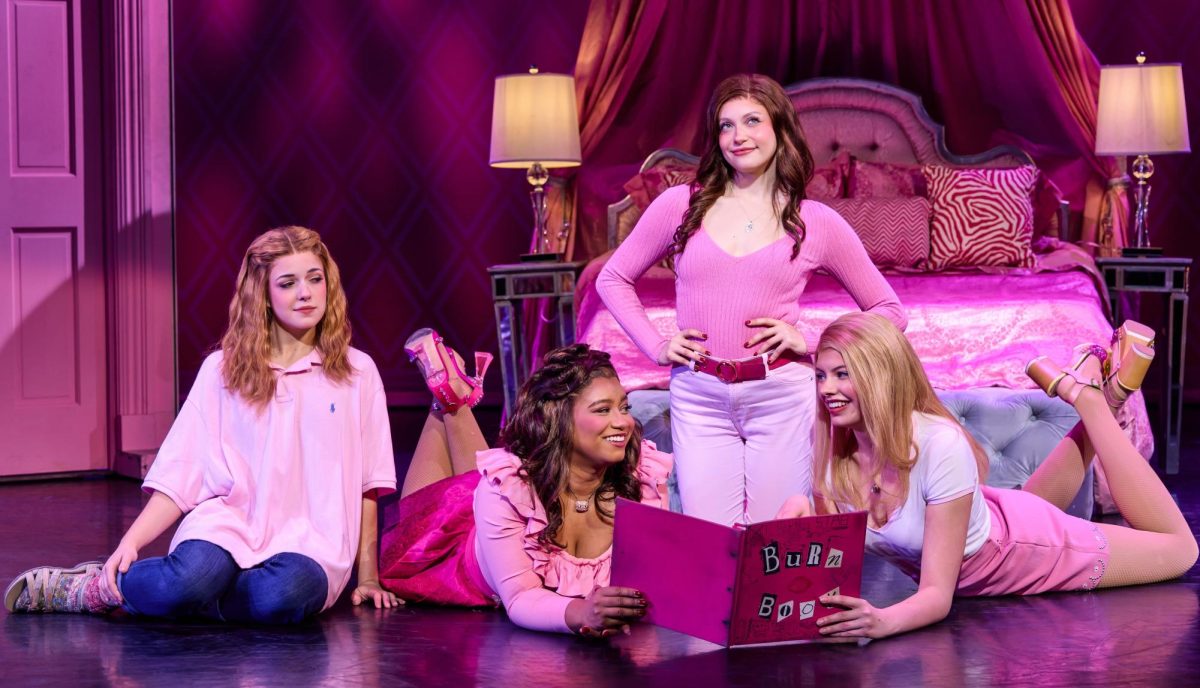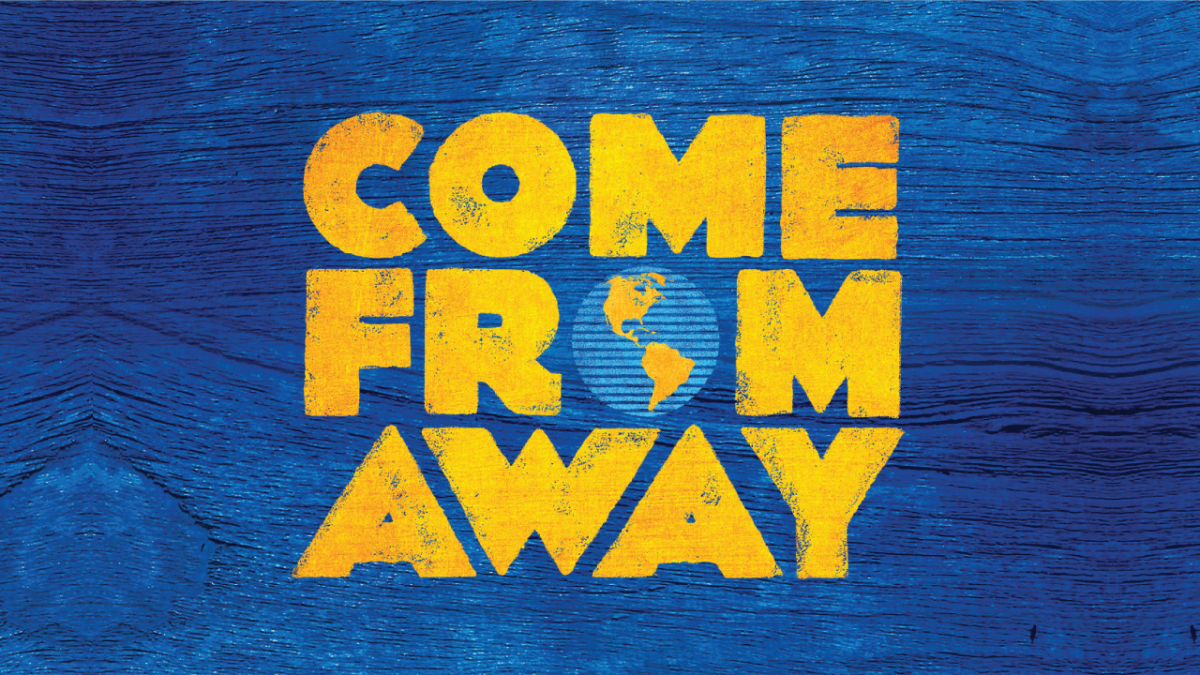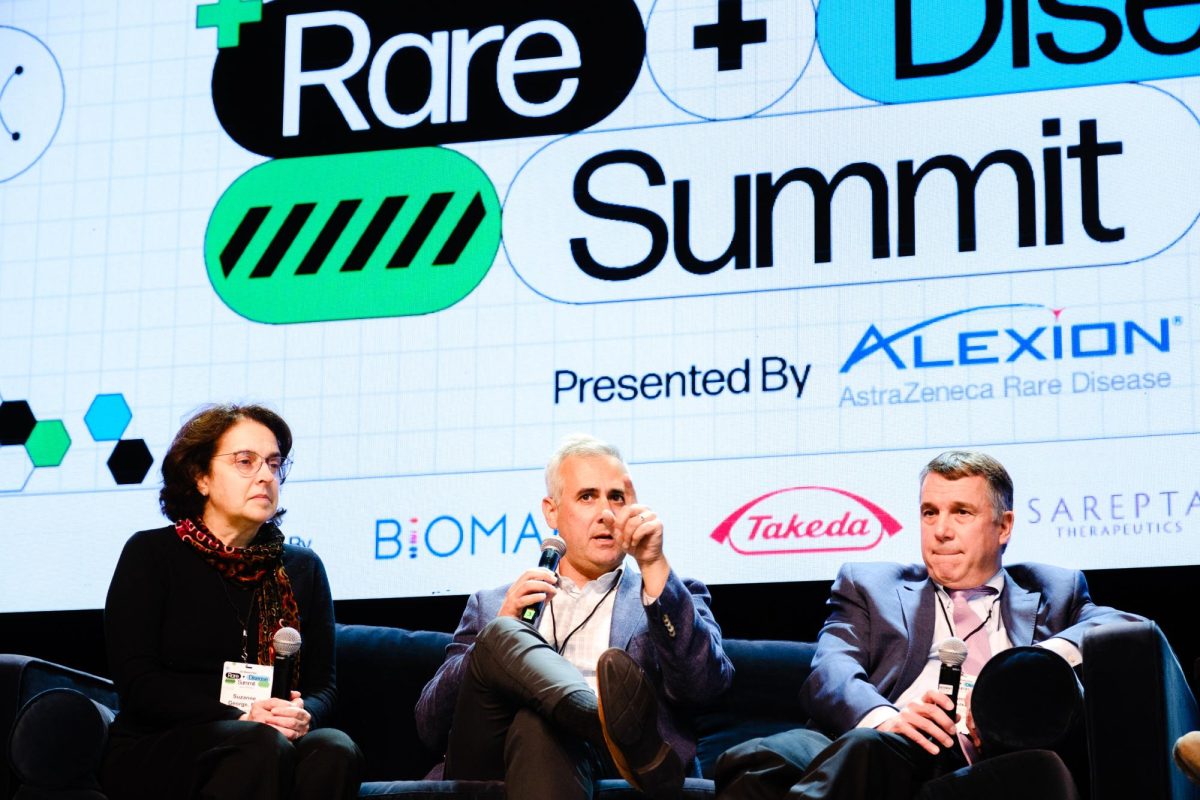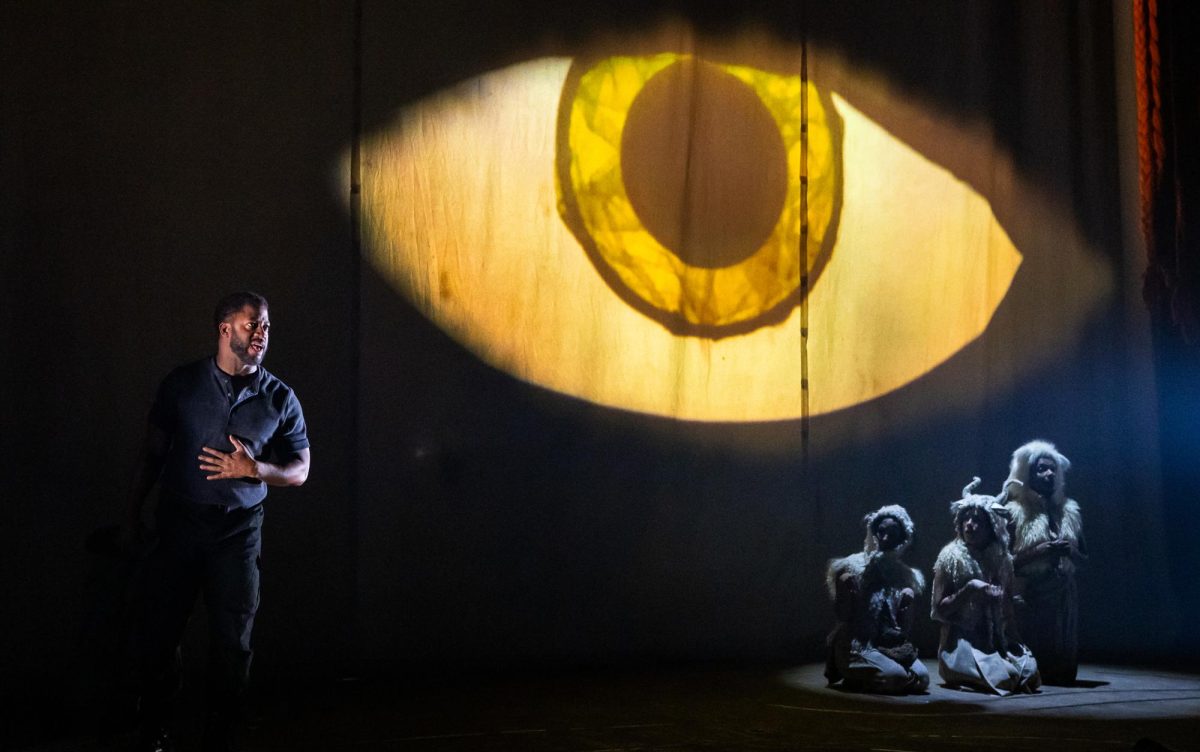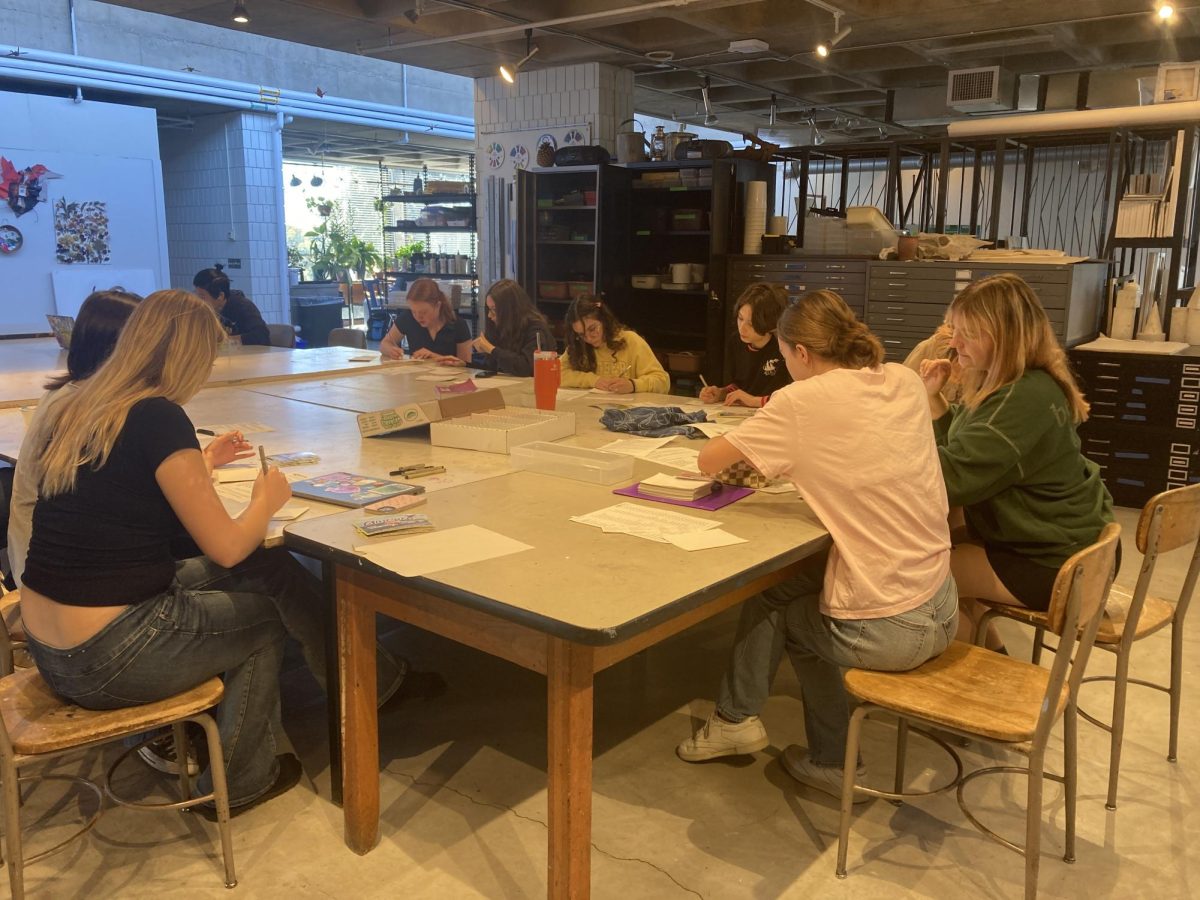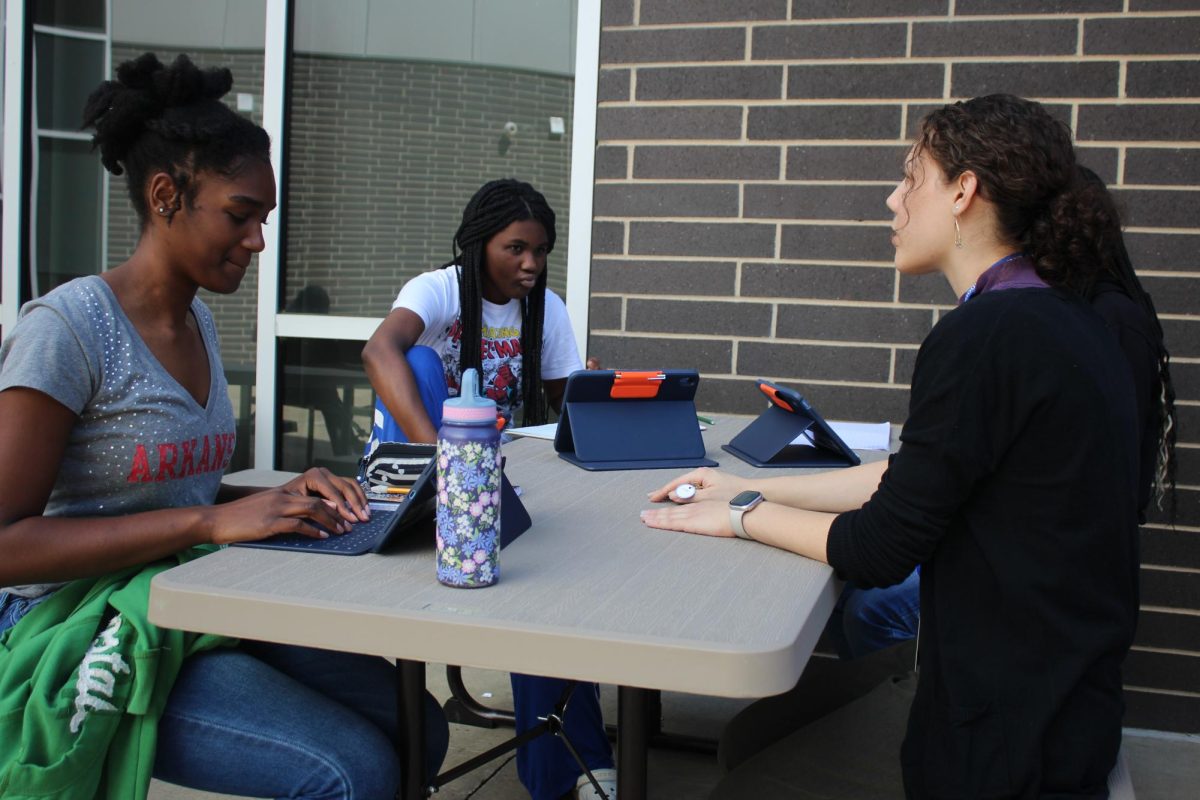Life in quarantine: All of us together, and all alone
Eight high school students from across the country share their personal stories about coping the best they can
May 20, 2020
The outbreak of the COVID-19 pandemic and resulting quarantine has had unprecedented and adverse effects on everyone. Teens nationwide have had no choice but to cope with stay-at-home orders. Eight high school students from across the country share their personal stories.
Emily Flanagan, Class of 2023
Andover (Mass.) High
I, like everyone else, feel like I’m losing my mind.
In Massachusetts we are approaching the 10th week of the stay-at-home order, and that’s a really long time. Luckily, Governor Baker announced Monday the steps the government will be taking to reopen the economy. While stuck at home I have been trying to keep busy, although it’s difficult considering there are 12-15 hours a day to fill with activities.
My dad and I have been practicing soccer and I’ve been working out a ton to get ready for tryouts in the fall, assuming there are going to be fall sports. My family and I have also been ordering out about three times a week to try and support local businesses.
I also try to FaceTime someone every day, because I really need to see people that aren’t family sometimes. (May, 2020)
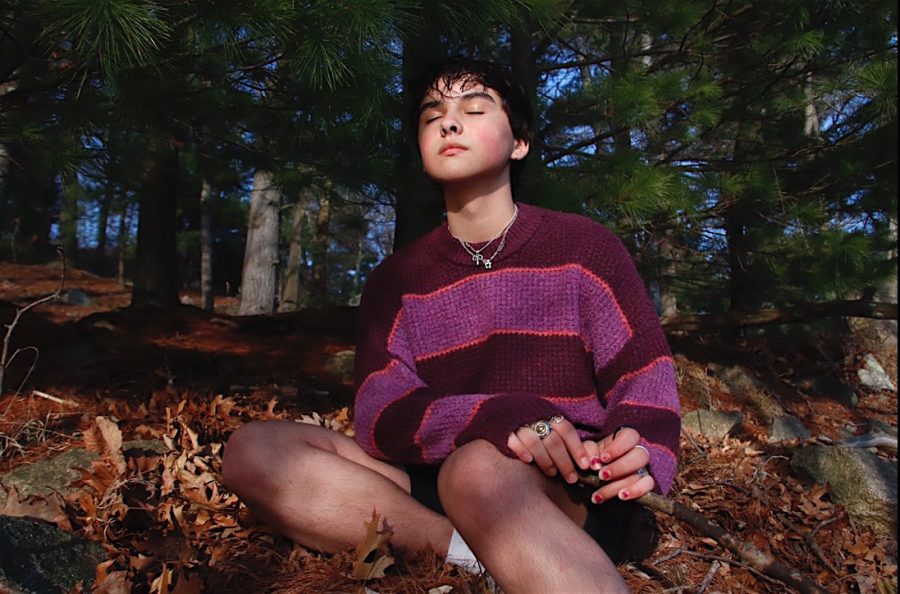
Oliver Garvey, Class of 2021
Buckingham Browne & Nichols (Cambridge, Mass.)
The classic smell of morning dew on pine trees fills my nose as I bike to the cemetery.
The sky is a perfect shade of what I like to call “movie blue,” not too bright, not too dark. Journal in hand, I take a seat on a bench in front of the reservoir right at the entrance of the cemetery.
It’s 7 a.m. It’s peaceful. But as calming as it is, my brain still wanders into the confusing territory that is identity. I am completely alone with myself and my thoughts with no distraction other than the older man who asked me what time it was and then went on his way — and being so alone is scary.
When you’re alone, no one is there to guide your thoughts. Everybody adjusts
their behavior when they are with different crowds; people are polite when meeting someone new, students don’t swear in front of their teachers, etc. That’s normal. But what happens when you go beyond changing your behavior and begin to change your entire personality?
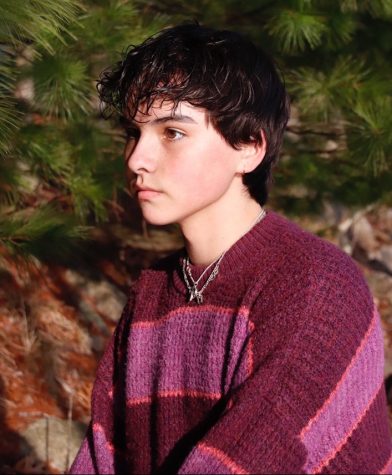
Growing up, I was a very carefree kid. As I got older, I lost that part of myself. When I started freshman year at a brand-new school, I so desperately wanted a fresh start. I wanted to blend in. I didn’t want to try to become popular and just end up in that uncomfortable and painful in-between of liked but not liked enough. I just wanted to fly under the radar.
To do this, I began chipping away at the things about myself I liked the most. I dyed my hair back to its natural brown instead of a bright green, changed my clothing style, and tried to repress any femininity. And as the years went by, I kept tweaking my personality to be more appealing to certain groups of people. I adopted a different persona for each person I talked to, and at some unknown point, I lost track of who I wanted to be, who I was trying to be, and who I actually was.
Being alone in quarantine, I didn’t know who I was when I was alone anymore. I realized I had forgotten the real version of myself.
There are a lot of negatives to quarantine, and of course it feels strange to work on personal growth during a time when so many people are suffering, but it has given me the opportunity to learn about myself and appreciate myself more.
Instead of desperately searching for something to distract myself from my thoughts, I can sit in silence on the bench in front of the reservoir, right at the entrance of the cemetery, rebuilding the things about myself I like the most. (May, 2020)
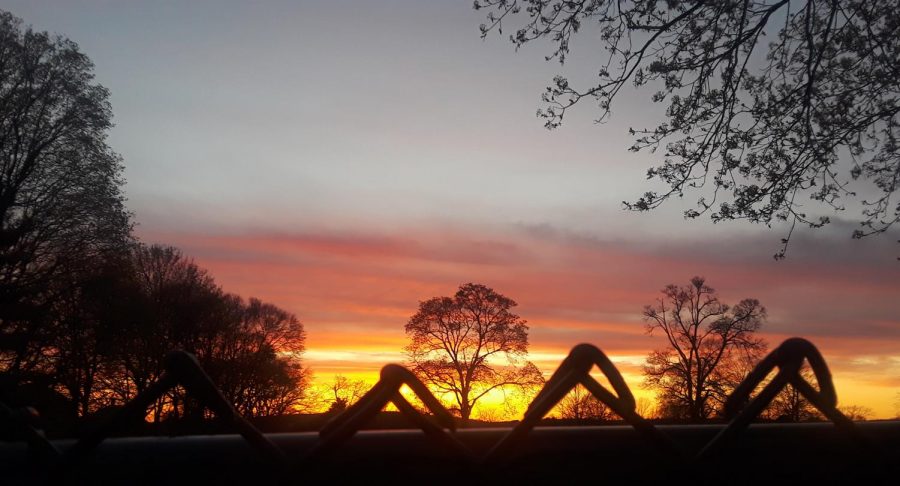
Carina DeLorio, Class of 2023
Watertown (Mass.) High
Human interaction is a vital part of any society. I mean think about it, why does a mother send her child up to their room when they misbehave? Why is solitary confinement a punishment? Naturally, humans are social creatures, we find comfort in others.
And now, when Mother Nature has punished her children, exiling them to their rooms, we need that comfort more than ever. But it is the one thing we can’t have.
So now, in every corner of the world people are living new lives. Brave health care workers daring to risk everything to help those in need, strong teachers attempting a job they didn’t sign up for, and teenagers such as me, eating, sleeping, working, and living out of their bedrooms.
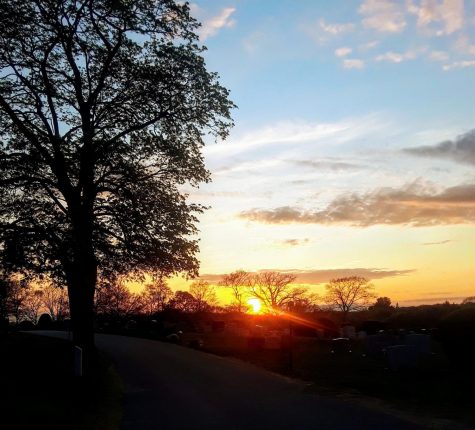
I’m naturally a very organized person, so even in these crazy times, I’ve been maintaining a schedule. Unfortunately, online schooling has brought much more work than I ever had at school, so I block out 9 a.m.-3 p.m. for schooling. I’ve also found that being home more means I have more time to make a mess, so every day after I’m done with work I make it a point to put some time into cleaning. After that, the rest of the day is mine to do whatever I want, and I’ve definitely been taking advantage of this.
I’m a cheerleader, and though the season is over, I’ve been making sure I keep up with my skills. Every weekday I find myself in my backyard, practicing or working out for about 45 minutes. With all of this time at home, I’ve made it a point to keep this athletic schedule every day, so that when the world finally gets back to normal I will already have a habit of working out to keep me in shape.
Ironically, now that no one else sees me, I’m in great shape.
Not going anywhere or seeing anyone outside of my family can sometimes get a bit depressing as well as stressful, so I’ve also managed to find many activities I do every day for my mental and emotional well-being. One, for example is that at 7:15 every evening just as the sun is going down, I walk around my neighborhood to admire the sky. Some nights it’s just beautiful and I don’t find my way back home until 8, and other nights is just a quick stroll. Either way, it is a very peaceful time where I can just be happy, and think with a clear mind.
Additionally, with all this extra time on my hands I’ve been putting a lot more effort into my appearance. Of course, it is semi-pointless as I don’t exactly see people throughout the day, but it makes me feel a lot better about the fact that I am not going anywhere and gets me really motivated to get things done. To do this, I have created a skincare routine for myself much more elaborate than anything I’ve ever done before.
I’ve also been experimenting with my style, trying all sorts of outfits that I never would have thought of before, and it works out great because if it doesn’t look good, who cares no one is going to see me anyway.
To fill in al the extra little spaces in my day, rather than going on my phone I have been learning a few new skills. During the quarantine, I have taught myself how to play the ukulele, and I now pick it up every day, every time learning a new song. Like many others, I have also been practicing my baking skills. I have found many professional bakers who, with so much extra time, have been live streaming baking tutorials that I love to follow along with. My personal favorite is @christinatosi on Instagram with her daily show, “Bake Club”.
I am naturally a very introverted person, so a normal day at school before the pandemic was very stressful for me. Now that I don’t have to worry about how I look, what others are thinking of me, and even what I’m wearing, my mental state has greatly improved. Every single day I’m in a good mood, and nothing brings it down.
I am aware of how lucky I am. Many people are doing everything they can to help others, and countless people are in need of that help. COVID-19 is in no way a good thing for this world, but, personally, my life in quarantine might just be better than it was before. (May, 2020)
Jinho Lee, Class of 2022
Cambridge (Mass.) Rindge and Latin School
Mother’s Day, held in early May, is conventionally thought to be one of the most heartening days of the year. One of endlessly warm hugs, delectable brunches, and newfound spring cheer. For the first time ever, this was not the case for my household.
Where we usually gave adorable card stock cards to our mother and snacked on blueberry pancakes, we instead resided in a hollowed house with only echoes of past content.
I woke up that Sunday morning eager to hug my mother, springing out of my bed and into my parents’ room only to greet an empty bed. It was odd, so I headed instead to the living room, expecting to see my mother bundled up on the couch — but once again she was absent.
My dad was making pancakes, and I asked him where mom was. In a muted response he said that she had taken on a double shift at the nursing home because all the other nurses had called out for Mother’s Day. I lowered my head and held a smile, saying it was all right. It had almost been 17 hours since she had last been home, as she had taken on an evening to morning shift beforehand.
The next few hours were restless, my mother’s absence being felt to an endless extent. We attended online church where all the families were bundled up with their mothers, which I pretended to ignore. In a spontaneous move afterward, I rallied up my little brother, and we marched to the Whole Foods down the street. All the flower bouquets being sold out, we settled on a large hanging display full of pink and purple flowers. Although my mom always infamously told us to not buy her flowers until it was on our own money, this was a different circumstance needless to say.
It was terrifying thinking that working at a nursing home my mom could be exposed to COVID-19, and that she had an even higher chance of exposure due to her longer shift. But in the late afternoon, when golden hour was just streaming in through the windows, and the smell of a dinner being prepared calmed our breaths, we heard the sound of delicate footsteps making their way up the stairs to our apartment.
My ears had trained themselves to this sound long before, dating to my childhood days — waiting for my mother to come home after a long day of school. The gentle patter of my mom in her worn-out Nikes outside our door was unmistakable.
My dad, little brother, and I rushed to the door with the flowers, and surprised her as she tiredly opened the door. I almost had no restraint and hugged her, but these were different times.
As much as I wanted to physically embrace her and melt into one of her hugs, I could feel her affection even being so many feet apart.
I love my mother, and this disease that keeps us apart has only strengthened that. (May, 2020)
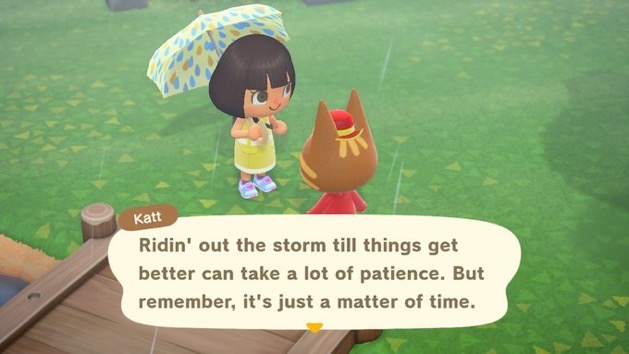
Caroline Lobel, Class of 2021
Dougherty Valley High (San Ramon, Calif.)
As a current high school junior, social distancing has been nothing but a curse.
Staying home all day everyday has distorted my concept of time. I sleep through the day and stay up all night to avoid facing expectations of remaining productive. It’s hard to gather motivation during this time, yet I’m still expected to function as usual. In this digital day and age, my work follows me and I can never catch a break. Even with all this additional time on my hands now, it still doesn’t feel like enough to get everything done.
In fact, nothing’s really changed in my life other than having all the good things being taken away from me.
With the uncertainty of COVID-19, my Key Club District Convention back in March was canceled only two days prior. Now, I’m left with all the work and none of the interactions that make serving so rewarding.
I’ve had to learn how to adapt with leading digitally so now all I have are memories of Zoom calls. The same goes for journalism. My school’s newspaper, The Wildcat Tribune, has had to adapt to digital issues. When it came to putting together our COVID-19 issue, I felt guilty for not contributing any coverage because I didn’t have it in me to write and report.
That’s the hardest part about quarantine: feeling the need to go above and beyond, while being unable to get anything done, even if it’s something I’d typically enjoy doing.
As for distance learning, I receive assignment after assignment without any learning instruction. While I manage to get most of my work in on time, all I’m doing is turning in busy work. On top of this, I also have AP tests to study for.
Entering quarantine feeling burnt out from the burdens of junior year has made the past two months flooded with stress. I constantly feel pressure to do more than usual with all this extra time on my hands, but I simply don’t have the motivation to do so. Not going outside for the past couple months and being around only my parents has made me lose my sense of self.
The things I enjoy doing the most have been taken away from me. Though I try to do new things such as cooking and rekindling my love of reading, I lose motivation easily. I’m usually not much of a crier, but I’ve definitely shed more than a few tears during quarantine because of how stressed I am and that I can’t do anything about it. It’s not the stress or pressure that makes me feel bad, but rather the inability to do anything.
At least once a day the thought, “I don’t want to be here,” crosses my mind. And so I turn to video games as an escape from my reality.
A week after quarantine began, “Animal Crossing: New Horizons” was released. I had been waiting for this game since Nintendo announced its release date, but I told myself I wouldn’t purchase it until summer so I can spend the spring focusing on studying for the SAT and my AP tests. With the May SAT canceled and social distancing for an uncertain amount of time, I purchased the game a day after it came out and I’ve been playing it daily.
The Animal Crossing series is my favorite, so with the addition of quarantine, “New Horizons” is even more of a godsend now than before.
Staying at home at any other given time would seem like a luxury. But both of my parents have been unemployed since mid-March because they work non-essential jobs that cannot be completed from home. I, on the other hand, have been trying to keep up with my endless to-do list and feeling guilty about blowing off family movie night because of all the work that I’m expected to complete.
To end on a more light-hearted note, I’m fortunate to live in a county that has set stricter stay-at-home orders than the rest of the nation. I’ve been taking it one day at a time and giving myself plenty of time to refresh.
With three more weeks left of junior year, I hope to power through so I can regain motivation to try out new things and hopefully my sense of self during the remainder of this shelter-in-place. (May, 2020)
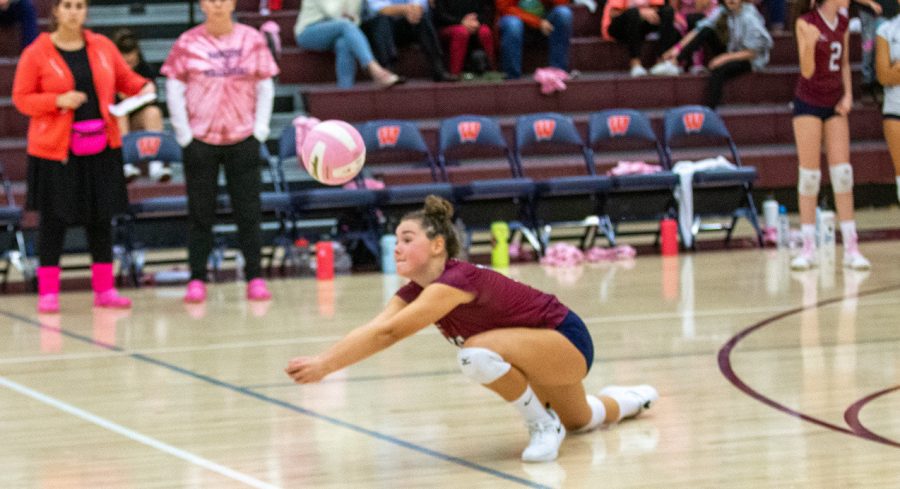
Shannon Clark, Class of 2023
Westborough (Mass.) High
Global outrage spread rapidly during the pandemic in response to the delaying, rescheduling, and cancelling of athletics. Athletes of all ages are suffering without their sports during this already difficult time, and limiting what they can do to practice to just activities at home is frustrating.
That being said, if athletes can find safe ways to practice their sport while following their federal and state social distancing guidelines, there is hope.
I am a three-season athlete playing school volleyball in the fall, club volleyball in the winter, and track in the spring. I also play non-competitive beach volleyball in the summer. My club season begins in early December and ends in early May.
COVID-19 became a relevant threat to my club team and I when we went to a crowded tournament that was played in the Boston Convention and Exhibition Center in Boston. Simultaneously, there was an outbreak at an international convention held at a separate hotel. As a precaution, our coaches had us wave to our opponents prior to our matches. That was the weekend of March 7. By that Wednesday, our club season was postponed, later to be cancelled, and that Friday was our last day of school.
It was a shock to have our season just end so quickly. Typically there is an end date for club seasons, so there is a period to wind things down and brace ourselves for the end. But our season abruptly halted at about the halfway point, robbing us of approximately half of our tournaments.
At the start of quarantine, I didn’t know how long this was going to last. I was hopeful the season would be pushed back or salvaged in some way. But as the number of cases and mortalities continued to climb, I knew that wasn’t realistic. With school season only a few months away, summer had previously been my dedicated volleyball time. Now that I’m stuck at home and my club season has been cancelled, I decided to hold my own practices and conditioning to continue progressing in my athletic career.
Normally, I lug my Santa-like bag of volleyballs into my wheelbarrow, and relocate myself around the outside of my house as I work on different drills. For passing (also referred to as “bumping”) practice, I use my chimney as a flat wall to throw the ball against as opposed to passing a serve or digging a hit by the opposing team in games. Next, I mosey down to my driveway where I practice my swings for attacking (also known as spiking) by hitting the ball down to the pavement with it then bouncing back to me against the garage. Finally, I practice my setting by using an old basketball hoop as a target.
I’ve been running for endurance, working on strength training, and also improving my agility for conditioning, which looks fairly similar to what we’d typically do in practices. As for the rest of it, it is less than ideal. Training is rigorous in it of itself, but having to undergo it alone without the support of your teammates and coaches truly tests one’s drive and passion for the game.
The primary notion that runs through my mind and motivates me to relentlessly persist each day is the hope of a school season in the fall. Despite the fact that people are now unsure if there’ll even be a fall season, I will continue my make-shift practices. Not only does volleyball give me purpose, but it also provides me with joy, accomplishment, and skills that will last me a lifetime.
I encourage all athletes to discover ways to continue improving for your sport, whether it be physically, tactically, or mentally. (May, 2020)
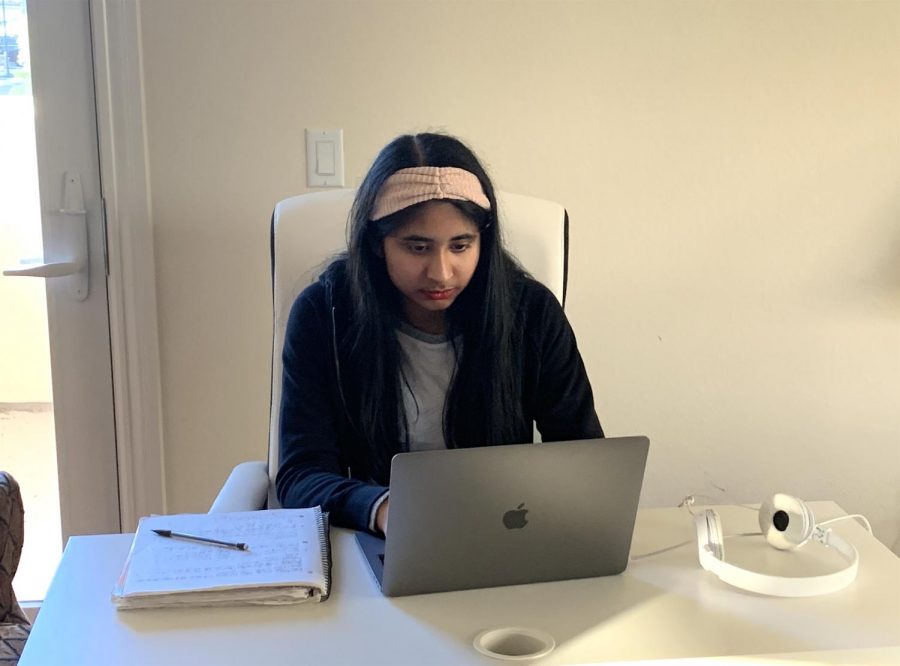
Shruthi Narayanan, Class of 2022
Dougherty Valley High (San Ramon, Calif.)
In January, when I first heard of a new disease in China and spreading all over Asia, my first reaction was to dismiss it. I figured it would be like the majority of recent disease outbreaks: it would be big in the place where it had originated, and would have a very minimal, if any, impact on life in the United States.
I figured that even if it did have an impact in the United States, it would only disrupt life for a few weeks, and things would quickly return to normal. I was excitedly still planning my summer programs in NYC and Stanford, excited to have a fun-filled summer for once. Back then, I was more worried about a war with Iran and the ongoing Australian fires. I’m not trying to diminish the importance of those events, but they seem so much smaller now with COVID-19.
On Dec. 31, with all of the “Happy New Decade!” posts on social media and just the general excitement for the ’20s, I never would have imagined that only three months later, total lockdown would occur in the United States.
I should have known better; I shouldn’t have just dismissed the threat. I read an article written by a high school student living in a badly affected place, and they described the horrors COVID-19 brought to their community, from once-busy streets now barren and empty, to the overcrowding of hospitals, and to the general sense of unease in people about the future. I heard about what COVID-19 did to places badly impacted by it, and yet, early in the year, I dismissed the threat of it, naively thinking that my community and I were safe, when in reality, that was far from the case.
It has now been over a month since I step foot outside of my house, and without a constant structure in my life, each day feels the exact same. Words like Monday, Tuesday, and Wednesday have lost all of their meaning. I’m not a very organized person, so I’m not compelled to make a schedule for myself if someone else doesn’t do it and there are no consequences if I don’t adhere to it. And with things I was looking forward to cancelled or postponed, there seems to be no real reason to keep track of dates. From day to day, nothing appears to have changed much, if at all.
This very unexpected pandemic has caused a multitude of very unexpected things to happen. Cornerstones of life have completely changed. Graduations, weddings, birthday parties, and funerals have turned online, if not cancelled completely. During times when families and friends get together and celebrate or mourn, human connectivity is lost in this new age, which feels like a new normal.
I was sad when I found out my summer program turned online, my NYC trip was cancelled, and my concert this summer was cancelled, but to distract myself from these thoughts, I found that there was much for me to be thankful for. My summer program was not outright cancelled, my trip and concert were only postponed, and most important of all, my family and friends are safe and healthy.
Things will get better; you can’t lose hope. To those of you feeling lonely, I encourage you to keep in contact with your friends. Take the initiative and plan some fun (and virtual!) activities for you guys to do. Soon, you will no longer feel as lonely. I know it’s not the same, but hopefully it can make you feel a little better, as this has helped me.
To spend my time, I have gotten back into reading and writing, two things I used to love to do when I was younger, but which I increasingly no longer had as much time for as piles of homework and tests started to pile up. With a lot of extra time on my hands, I have been able to cultivate my creative spirit and make substantial progress on my creative works. I have actually managed to write three whole chapters of my novel, a feat which I never even thought would be possible before this quarantine.
I never thought I would miss social interaction this much. Sure, I continue to keep in contact with my friends, but it’s much less than the amount I had done while school was still in session. I never considered the amount of social interaction I had done daily before I had lost it.
A month ago, it was my journalism advisor’s birthday, so everyone in journalism put together video messages of us singing happy birthday to her and saying a message. And during a Zoom call, which the exec board had framed as “an issue planning meeting,” everyone in journalism was going to be on the call, say happy birthday, and show her the two videos, seeing her reaction. When the Zoom call actually happened, it was so great to see most of the people in journalism be on the call, and it was really fun and emotional to watch both of the videos and hear the meaningful messages people had to say.
Even though we could not meet in person for her birthday, we still managed to make it special and meaningful, and stay safe in the process.
All in all, if there is one thing I’m going to take away from this crazy pandemic, it’s that we should value our time with the people we care about, because we never know when it will become severely reduced, or even lost. (May, 2020)
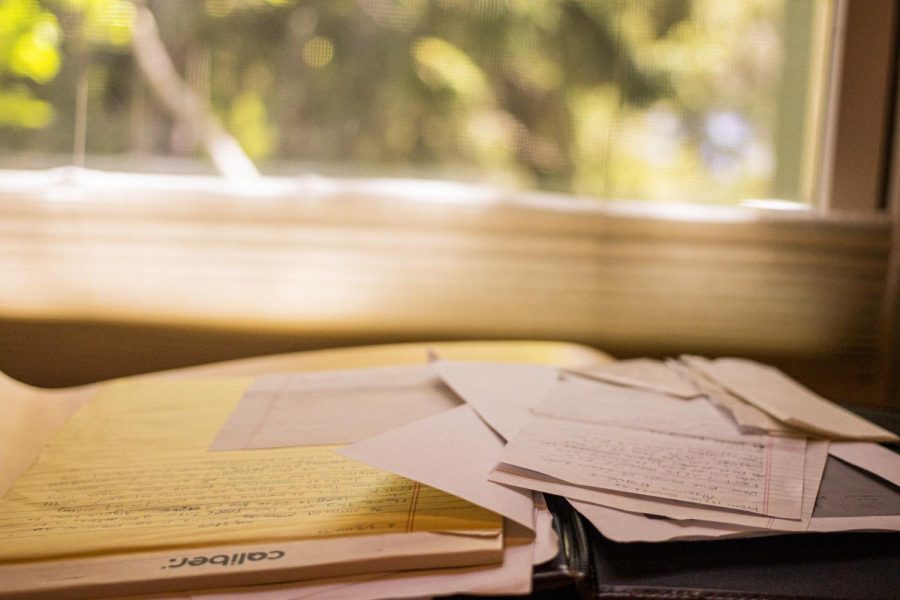
Ryan Sanghavi, Class of 2022
Noble and Greenough School (Dedham, Mass.)
All COVID-19 stories and journalistic articles are exactly the same. All fantasy novels are exactly the same. All political reporting and analyses are exactly the same. And, meta as it may be, all three preceding sentences are exactly the same.
There is undeniable individuality expressed every day that the weeks march on. Granted, with billions of narratives regarding personal experiences during what was essentially a global lockdown, many are bound to be similar — most people do not want to hear about how one of their friends picked up baking as a hobby for the dozenth time. Although I cannot say I entirely avoided that particular activity, I did revisit some of my old niches, especially in literature, which I had distanced myself from for so long.
Book stores in my neighborhood closed down immediately after early warning signs of a pandemic as residents scrambled to get their hands on a number of narratives. Unable to do so myself, I turned to the next best thing; creating my own composition.
World building can be easy when one has 16 hours of free time every day for a consecutive month. I always supposed that one day, if the rest of my career options failed, I could become a novelist. It was disappointing and truly malicious of atmospheric conditions to shatter this path. Not that I disliked the writing process, I simply ran out of ideas, content, and, unfortunately, motivation rather rapidly.
Some of the greatest literary composers say that the toughest writer’s block comes after 20 percent of the story has been written — when the author slowly loses the initial excitement sparked by a stirring idea, and new routes for the plot must be generated on command. I personally did not quite overcome this obstacle. I would not use the word “quit” — perhaps I would say “set aside” for another time.
Luckily enough I was immediately swept up into a craze for journalism. This desire could have been sparked by school and local newspapers, or it could have been a distant section of my mind urging me to continue writing in another form. I produced a number of articles on notable individuals, popular culture, and my personal experiences of a family member ill with the virus. With fantastic editors and a somewhat delayed production team, I was soon lucky enough to read some of my own publications.
It can be difficult finding interesting topics to report on in a time where one matter looms within every person’s soul. There are few other local developments, no performances to review, no sporting events to enjoy, and only a purgatory of repetition to revel in from dawn to dusk.
I believe it was Nathaniel Hawthorne, the creator of so many American classics, that introduced the philosophy so applicable to the spring of this pandemic. After years of labor in a local Custom House, recording and noting the dullest features of history, Hawthorne lost the creative spark that drove him to create works of literature. He deduced that should the most energetic, youthful, and spirited artist on the planet be placed in the dullest environment, they would be drained of the talent and joy that they once found in pursuing their passion.
Without the prompting that a life of spontaneity constantly provides, how can a project be completed and a work perfected?
So, if the flame of passion has been extinguished from one’s mind and heart, how can it be reignited? With such busy lives, our workers and students seldom have time for reflection and reminiscing. Perhaps recalling a thrilling adventure or turning point of the past could awake such forces.
In all honesty, every person’s path during this time is different, and there are many ways to rediscover the zest that springtime typically provides. One of the greatest tragedies of my generation is knowing how many will be scarred by this period. However, one of my greatest pleasures will certainly be knowing how many grew as a result.
–May 20, 2020–

